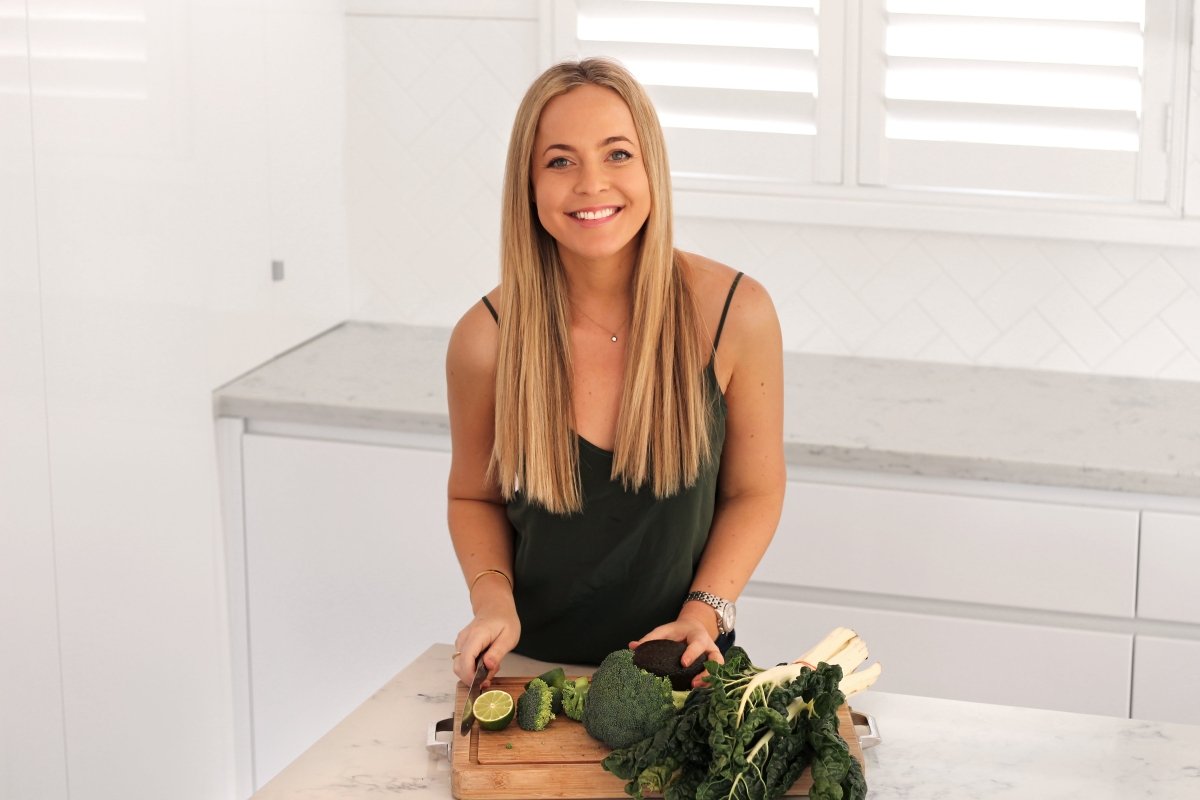#MOTHERSKIN BEC MILLER

Our skin is our largest organ but also the last organ of the body to receive nutrition. This is because the body will prioritise the vital organs and processes first. What does this mean? We need to eat an overload of nutrition for adequate supplies to be allocated to the skin.
Meet Bec Miller, a Clinical Nutritionist (Bachelor of Science Nutrition) and the founder of Health with Bec.
She’s our #MOTHERMATE because she lets us indulge in satisfying, fulfilling food whilst slimming down and eating the right SKIN ESSENTIAL NUTRIENTS in our daily diet to see the results in our skin!
Why is diet so important for skin health? What’s the connection?
Diet is extremely important for skin health! From strength and elasticity, to breakouts, the food you eat can affect it all. It is connected in many ways: Here are two:
- Your diet can affect your hormonal balance. If your hormones are out of whack, it can show up on your skin as nasty hormonal breakouts for acne prone women.
- Your diet can trigger ongoing, chronic inflammation in your body which, once again can present as breakouts, especially in acne prone women. Whilst acne has many confounding factors, diet is certainly one of them and shouldn’t be overlooked. Highly processed foods containing inflammatory vegetable oils and sugar should be limited and its also worth looking at investigating excluding dairy and / pr gluten or if you’re acne prone to see if that helps – it certainly does for me!
Does Vitamin D play a role in maintaining health skin?
Yes! So glad you have asked me this, as it’s something so many don’t realise or consider! Our bodies synthesise vitamin D through the sun. The only other way we can synthesise optimal amounts is through
Healthy levels of vitamin D have been found to prevent skin aging. A 2007 study in the American Journal of Clinical Nutrition demonstrated that telomeres (sections of DNA strands) were significantly longer in patients with the highest serum vitamin D levels, compared to those with the lowest … equivalent to five years of aging!
Vitamin D is also actually crucial for skin protection. The active form of vitamin D, calcitriol, helps with skin cell growth, repair, and metabolism, as well as preventing skin aging.
Of course, too much sun causes harm though, we want to aim for at least 10 minutes of sun exposure on our bare skin daily, with sunscreen!
You can also consider supplementing with vitamin D and eating vitamin D rich foods such as salmon, herring, sardines, canned tuna, Pasteur raised egg yolks and mushrooms.
What are the overall benefits of taking supplements for the skin?
There are many different vitamins and minerals that help to keep your skin healthy, slow down aging, manage acne and inflammation and control elasticity and strength. These vitamins and minerals should essentially come from food if you eat a well-balanced diet especially rich in vegetables, however, in today’s modern society with lower soil quality, high stress environments and pollutants, sometimes supplements are necessary to provide our bodies with an extra boost, just to ensure we get adequate amounts of these vitamins and minerals to meet our daily needs and keep our skin at its optimal!
Which supplements actually produce benefits? Are they really necessary?
Some do for sure, especially if you are lacking in your diet. Some vitamins and minerals are actually quite hard to option in optimal doses from food alone, so taking a supplement is a great insurance. The ones that have been studied to show benefits for the skin include zinc, fish oil (unless you’re eating fish at least twice a week),
Collagen supplements are said (anecdotally) to help with acne prevention and other skin conditions, but these are not supported by strong scientific evidence (yet). It has been studied however, to show that hydrolysed collagen taken daily for at least 3 months may help improve hydration and reduce wrinkles. Collagen supplements may also promote the production of other proteins that contribute to the structure of your skin, including fibrillin elastin.
B vitamins, vitamin K and probiotics have also been studied to show beneficial effects on the skin. For instance, vitamin B12 helps with acne, Vitamin K helps to reduce wrinkles and slow is down the aging process and probiotics can help with nearly every skin concern! Vitamin B needs are met pretty easily if you include animal products like meat and dairy in your diet. If you don’t, you may want to consider supplementing! Vitamin K2 is present in sauerkraut, miso, full fat dairy products, egg yolks and organ meat. So, you may want to supplement if you’re not eating those foods regularly!
Does our gut play a role in skin health? If so, what are the top 5 things we can do to nourish our gut?
Short and sweet… it’s a big fat YES. Our gut bacteria can affect our inflammatory markers, digestion, the elimination of toxins and even our sleep and mood, which indirectly affect what we choose to eat and how we treat our bodies. It’s all connected! We want lots of the good guys and less of the bad.
So, here are my top 5 tips to nourish and optimise your gut health:
- Aim to consume a diet that is minimal in sugar and processed foods. As well as sugar, avoid artificial sweeteners such as aspartame and saccharin, as they reduce beneficial bacteria in the intestines.
- Eat foods that high in fibre and prebiotics (these feed the good bacteria in your gut to help them flourish!). This can be done be eating at least 5 serves of vegetables a day and eating a variety of colours too. Aim to bulk up your plate at lunch and dinner, or sneak some spinach and chia seeds or flaxseeds into your morning smoothie.
- Add a good quality probiotic supplement to your regime. I recommend consulting with a health care professional and getting appropriate tests to see exactly what’s going on in your gut if you have disturbances that are ongoing too, so that you can correct the imbalance if there is one and specifically improve what may be lacking or out of whack! Eating fermented foods that are rich in probiotics are also great for your gut health too. These are foods such as:
- Kefir
- Natto
- Sauerkraut (unpasteurised and containing live cultures)
- Tempeh
- Kimchi
- Miso
- Kombucha
- Pickles (pickled in salty water, not vinegar)
- Focus on improving your sleep hygiene to aim for at least 7 hours of deep, uninterrupted sleep per night as often as you can.
- Be very careful and wary about your use of antibiotics. Only take these if absolutely necessary and when you do, ensure you also supplement with a really good quality probiotic as soon as you cease them and continue to eat plenty of vegetables and fermented foods at the same time, and afterwards also.
You can find Bec at Health with Bec and on Instagram at @health_with_bec



Comments